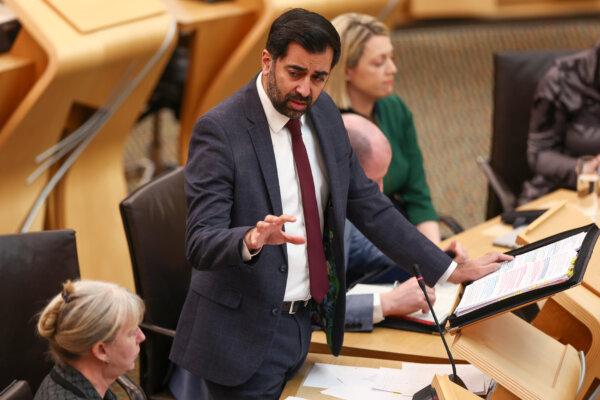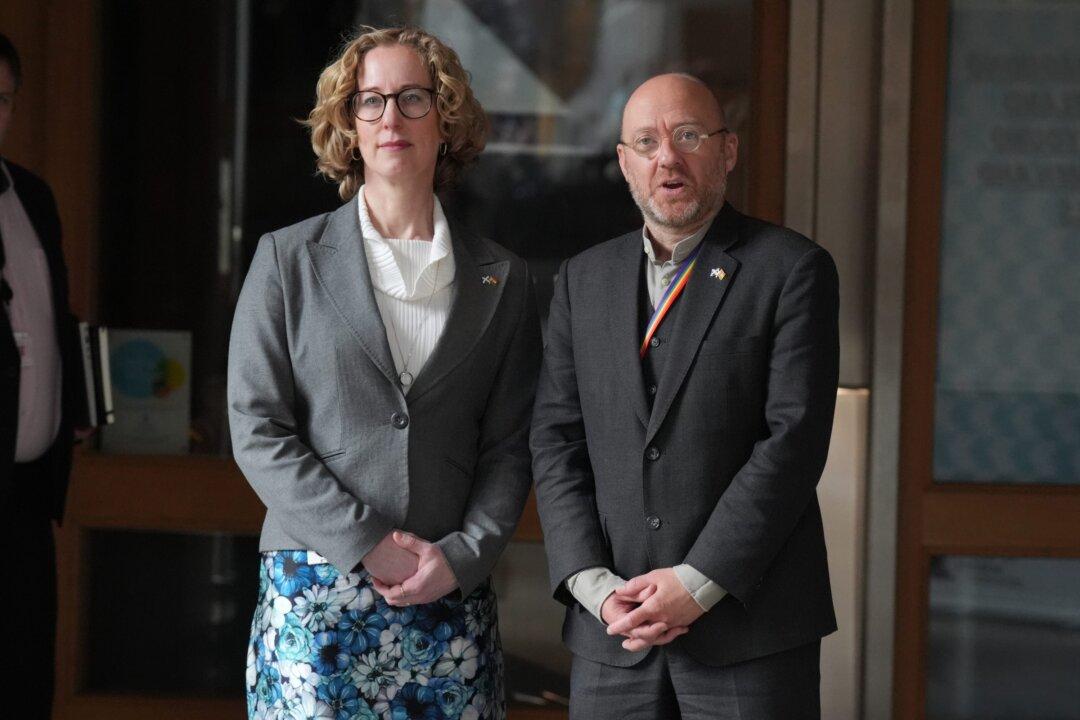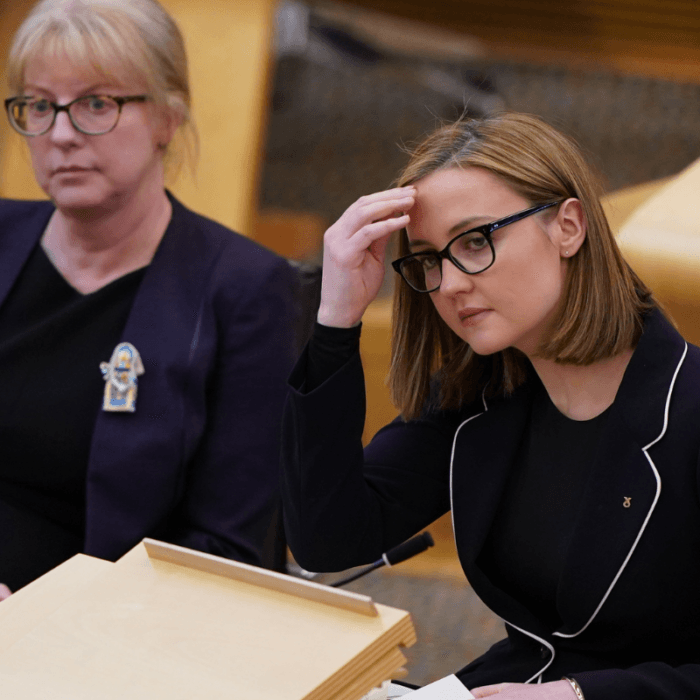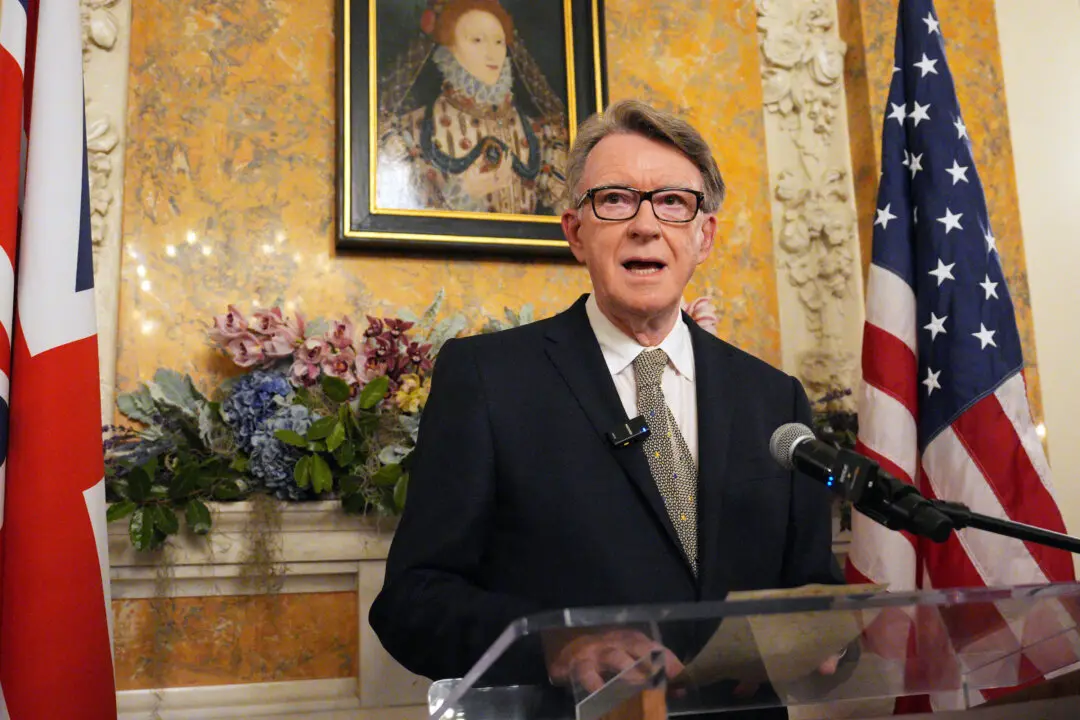An emergency meeting of the Scottish Cabinet on Thursday agreed to end the arrangement, known as the Bute House Agreement, that brought the Greens into power in Holyrood in 2021 when the SNP fell short of a majority by a single seat.
The move means the Green Party’s co-leaders, Lorna Slater and Patrick Harvie, are no longer part of the Scottish Government, with Ms. Slater accusing Mr. Yousaf of “political cowardice.”
The government had committed to reducing carbon emissions by 75 percent by 2030, but the target was suddenly scrapped last week after ministers accepted it was not a realistic goal.
Although the decision was publicly defended by the two Green ministers, many party members said they would vote to end the deal, leaving Mr. Yousaf to decide whether to end the arrangement on his own terms.
The first minister hailed the move as a “new beginning” for Scotland, and said the power sharing arrangement had “served its purpose,” joking that it had lasted 19 times longer than former Prime Minister Liz Truss’s premiership.
‘No Longer a Stable Arrangement’
During a press conference in Edinburgh, the first minister said, “It is no longer guaranteeing a stable arrangement in Parliament, the events of recent days have made that clear, and therefore, after careful consideration, I believe that going forward it is in the best interest of the people of Scotland to pursue a different arrangement.”“That is why, following a discussion with my Cabinet this morning, I have formally notified Patrick Harvie and Lorna Slater that I am terminating the Bute House Agreement with immediate effect.”
After being told the arrangement was over, Ms. Slater said, “This is an act of political cowardice by the SNP, who are selling out future generations to appease the most reactionary forces in the country.”
“By ending the agreement in such a weak and thoroughly hopeless way, Humza Yousaf has signalled that when it comes to political cooperation, he can no longer be trusted.”

Ms. Slater accused the SNP of having “broken the bonds of trust with members of both parties” and said it had “betrayed the electorate.”
Ms. Slater said she was “confident” her party members would have backed staying in government in the vote, and “continuing our work for Scotland.”
“By contrast, we as co-leaders of the Scottish Greens were prepared to put our own political careers on the line with our members, to defend our achievements in government, despite enduring all that SNP backbenchers and others threw against us. ”
Criticising the first minister directly, she added, “What a pity he didn’t have the fortitude or the bravery to do the same.”
‘A Lame Duck Leader’
In response to the end of the power sharing deal, Scottish Conservative Chairman Craig Hoy said: “The collapse of this toxic coalition is an utter humiliation for Humza Yousaf, who hailed it as ‘worth its weight in gold’ and continued to back it to the hilt right until the end.“The first minister’s judgment is so poor that he couldn’t see what a malign influence the anti-growth Greens have been in government and his authority so weak that he was bounced into this U-turn by his own MSPs.”
Scottish Labour deputy leader Dame Jackie Baillie said, “This chaotic and incompetent government is falling apart before our eyes.”
Scottish Liberal Democrat leader Alex Cole-Hamilton said the end of the agreement had left the SNP and the Greens “at each others’ throats,” and accused the two parties of “trying to blame each other, [when] in reality they have both failed the people of Scotland.”
Scottish Conservative Leader Douglas Ross told First Minister’s Questions that Mr. Yousaf was a “lame duck leader” and announced he had tabled a motion of no confidence in his leadership.
If a vote of no confidence is passed, it would mean a majority of MSPs no longer have confidence in the leadership of the first minister, and would put Mr. Yousaf under pressure to resign or call an election.
There are 129 MSPs, of which 63 are SNP members, 31 are Conservatives, 22 are Labour, seven are Greens, and six are from the other parties including the Liberal Democrats and Scottish Alba Party. The single Scottish Alba Party member, Ash Regan, left the SNP because she did not agree with the party’s stance on gender ideology and self-ID—and her vote could now prove crucial in Mr. Yousaf’s political future.







